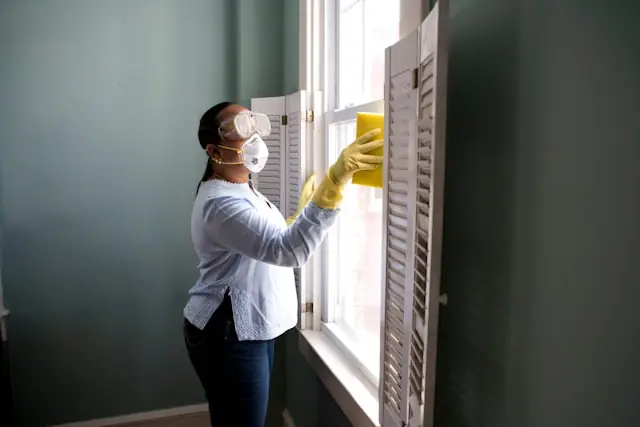When customers hand over house keys or grant after-hours access to offices, they are trusting your systems as much as your staff. That is why the software you use to schedule jobs, store client data, and process payments needs rock-solid protection. A leading platform in this space, www.thecleaningsoftware.com/, shows how thoughtful security can live alongside user friendly design, turning trust into a growth engine.
1) Multi-Factor Authentication That People Actually Use
Passwords get shared, reused, and guessed. Multi-factor authentication stops that by requiring a second check, like a one time code or authenticator app. The best setups let owners enforce MFA by role, so field techs, admins, and accountants can have tailored rules without slowing the whole team. Options like biometric logins on mobile keep friction low while shutting the door on the most common intrusions.
2) Role-Based Access Controls With Least Privilege
Not everyone needs access to everything. A scheduler might view routes but never export financial reports, while a crew lead can see today’s job details without opening the client database. Role-based access with the principle of least privilege limits what each user can see and do. It also creates cleaner audit trails, which simplifies investigations and compliance reporting if something goes sideways.
3) End-to-End Encryption In Transit And At Rest
Client addresses, door codes, and payment tokens are sensitive by nature. Your platform should encrypt connections with modern TLS and store data at rest with strong algorithms. Look for automatic key rotation and safe handling of secrets, especially for things like saved cards and third party integration keys. A platform that treats encryption as a default rather than an add on gives you a security baseline that scales as you grow.
4) Tamper-Evident Audit Logs You Can Actually Read
If you cannot see it, you cannot secure it. Tamper-evident logs record every sensitive action: price changes, refund requests, permission edits, and data exports. Clear, human-readable entries help managers spot odd patterns like a midnight data pull from a new device. Bonus points if the software lets you set alerts that ping you when someone attempts too many logins or tries to download the full customer list.
5) Compliance, Backups, And Incident Readiness
Security is more than walls and locks. It is also about proving good habits. Reliable vendors document their practices, run regular backups to separate regions, and offer recovery time objectives you can plan around. They publish a status page, maintain uptime SLAs, and share a straightforward incident response plan. That transparency reassures enterprise clients and keeps your team calm when the unexpected happens.
The Hidden Value Of Secure Design In Day-To-Day Cleaning Operations
Strong security can feel invisible when it is done right. In practice, it protects your brand on every job, from residential deep cleans to recurring commercial contracts. A forward looking platform we evaluated recently shows how sensible defaults, easy onboarding, and smart guardrails reduce mistakes without creating headaches. The win is simple: fewer emergencies, less data sprawl, and happier clients who stick around longer.
A Quick Word On Professional Home Cleaning Services
Professional home cleaning services today are powered by scheduling tools, mobile apps, and payment systems that keep crews on time and clients informed; http://phclean.net/ demonstrates how the best providers pair meticulous checklists with software that remembers preferences like pet instructions, sensitive surfaces, and access notes. When platforms encrypt personal details and gate who can see them, teams deliver spotless results while protecting privacy, which matters when you are handling garage codes or alarm instructions. Real time job updates help homeowners track progress, skip awkward back and forth, and approve add ons confidently because the price and scope are clear. Fun fact: many clients say they value consistent communication as much as the shine on their kitchen island, which means secure portals and trustworthy notifications can be a secret weapon for five star reviews and long term loyalty.
How To Put These Essentials Into Practice Without Slowing Down
Switching to stronger security does not have to be a chore. Start by enabling MFA for owners and admins, then roll it out to the field with a quick training video and QR code setup. Create three or four default roles to cover most cases, and reserve custom roles for edge scenarios. Turn on encryption and automatic backups by default, and make sure you actually test a restore once per quarter. Schedule a monthly review of audit logs, focusing on failed logins, permission edits, and bulk exports. Keep a one page incident checklist in your operations playbook so anyone can escalate fast if they see something strange. Most importantly, pick software that bakes these controls into workflows you already use, not bolt ons that your team will forget.
Trust Sells: Use Security As A Marketing Advantage
Security is not only risk reduction. It is a sales lever. Add a short paragraph to proposals explaining your MFA policy, data encryption, and audit logs. Mention that your platform vendor invests in regular updates, status monitoring, and disaster recovery. Prospects with sensitive spaces or VIP clients will notice. When your software partner prioritizes protection, you inherit credibility that shortens sales cycles and increases average contract value.
The Five Essentials, One Clean Outcome
Multi-factor authentication, role-based access, end-to-end encryption, tamper-evident logs, and proven readiness turn your software into a security ally rather than a liability. Implement them step by step, keep your team in the loop, and treat trust like the premium service it is. Clean spaces deserve clean data. When your platform delivers both, you do not just prevent problems, you polish your reputation every single day.

Leave a Reply